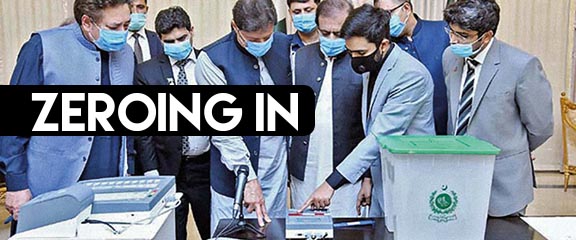A Conversation with Mansoor Ahmad Khan “Former Ambassador to Afghanistan”.
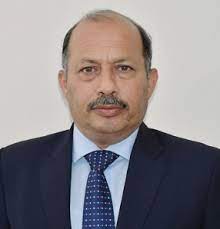
Mr Mansoor Ahmad Khan is a career diplomat, who served the Foreign Service of Pakistan from 1992-2022. His last assignment was as Pakistan’s ambassador to Kabul during the eventful period of September 2020 to August 2022. During this period, he worked closely with the Ashraf Ghani’s government for about a year and witnessed the takeover of Kabul by the Afghan Taliban on August 15, 2021 and then worked with the interim Afghan government for almost a year.
Earlier, Mr Khan served on a number of other important diplomatic assignments, including as Pakistan’s ambassador to Austria and Permanent Representative of Pakistan to the United Nations in Vienna. He also served as deputy head of missions in Kabul and New Delhi.
In his interview with ‘Narratives’, Mr Khan discusses the challenges of Pakistan-Afghanistan relations, and calls for extensive engagement with Kabul rather than indulging in blame-game to address the issues like cross-border terrorism and the presence of the TTP on Afghan soil.
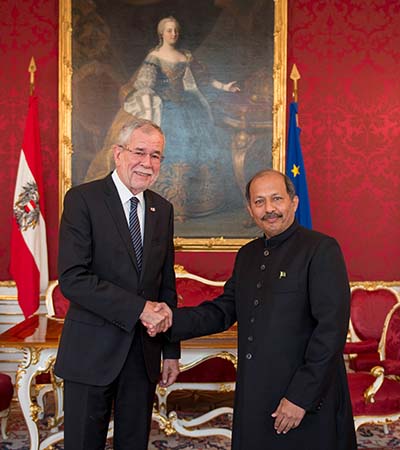
There were expectations that the return of the Afghan Taliban in Kabul would help secure Pakistan’s western frontier and build stronger relations between the two countries. Why did it not happen?
Mansoor Ahmad Khan: For many years, Islamabad has continued to emphasize that durable peace and stability in Afghanistan is in Pakistan’s interest. It would bring stability on the borders of our two brotherly countries, benefitting people living on both sides of the frontier and provide the much-needed economic integration and promote regional connectivity. However, for this to happen, Pakistan has to ensure stable engagement between the two governments and our societies. This will require patience and perseverance in dealing with the complex and intricate issues and avoiding the blame game. We have to be mindful that this border has remained a theatre of imposed conflicts, militancy and insurgencies since the 1970s despite the fact that people living on the two sides of the border have no differences with each other and they share a lot of commonalities. It’s important that the bilateral engagement should be given due priority to address the difficult issues like the TTP and border management.
For Pakistan, fencing the Afghan border is crucial to fight terrorism and prevent smuggling. But the Afghans remain bitterly opposed to it because they dispute the Durand Line and see it stopping the free-flow of the people. In this situation, what are the options for Islamabad?
The issue of fencing has to be seen with its background and context. Pakistan started fencing several years ago in response to serious allegations by the then Afghan government and NATO countries that it was helping the Afghan Taliban fighters’ infiltration into Afghanistan. Since then a large section of vulnerable parts of the border has already been fenced. In the recent border related engagement, the two sides have agreed that these issues should be addressed mutually. As a result, work on new fence construction is not being done. But the Afghan side has also to ensure that incidents of breaking the existing parts of the fence should be prevented and media hype on these matters be avoided. It is also important that a fence is not a permanent solution of a border where people on both sides have a common culture, and religion, and share socio-economic ties. The real solution is introducing modern technology-facilitated documentation for border management, supporting the movement of people and trade. A system of intelligence-sharing can be used to check and prevent movements of miscreants.
During your tenure as Pakistan’s Ambassador in Kabul what were the result of your interactions with the interim Taliban government on this issue?
One of the long established parameters of Pakistan’s Afghan policy has been to keep an active engagement with whatever government is there in Kabul. Therefore, during my two years stay in Afghanistan, I focused on maintaining close engagements with the two successive Afghan governments – during the first year with the government of President Ashraf Ghani and later with the current Taliban-led Afghan interim government. When the Taliban took over Afghanistan on August 15, 2021, our Mission was able to play a crucial role in helping a large number of expatriates and workers of the international organisations as well as vulnerable to evacuate to Pakistan on temporary basis, and then to the other countries. In the subsequent months, we also began engagement on enhancing trade and economic exchanges as well as combating cross-border terrorism, which included the Afghan Taliban supported talks with the TTP. While talks with TTP have not led to the desired results, the continued engagement with the Afghan Taliban is important to explore possible solutions regarding how to address the threat of these fighters using Afghan soil. Discontinuing engagement with the Afghan Taliban and public discourse moving to the blame-game or speculations about kinetic actions, can be dangerous. There is a need for immediately evolving channels that can address this intricate issue.
The past Afghan rulers and their supporters – especially the urbanite Afghans – have traditionally remained opposed to Pakistan, which enjoyed more goodwill in the Pashtun-belt, especially the tribesmen represented by the Taliban. Is this matrix changing now for good or for worse?
Afghanistan is a multi-ethnic country. For Pakistan, friendship with all Afghans — whether Pashtuns or non- Pashtuns — is important. While the border-belt is inhabited by mostly Pashtuns on both sides with a strong bond of friendship, in the 1980s, Pakistan was supporting all Afghans in their jihad against the foreign occupation without any discrimination of ethnicity. Afghans, therefore, despite passing through difficult times in the past decades, appreciate Pakistan’s support. Pakistan also continues to host Afghan refugees coming from all backgrounds. However, in the post-jihad period, particularly in the 1990s, there have been misperceptions about Pakistan exclusively backing the Pashtuns. In recent years, we made deliberate efforts to deepen our contacts with all the Afghans, particularly non-Pashtun political leaders. The Taliban take-over and so far their reluctance to take practical steps to bring inclusivity in the governance and political structures has again led to impressions of Pakistan’s support for Pashtuns. This is an opportunity for Pakistan to undertake initiatives in regional diplomacy, while reaffirming support for Afghanistan’s sovereignty and territorial integrity. Such a role should relay Pakistan’s message for relations with Afghanistan beyond ethnic lines.
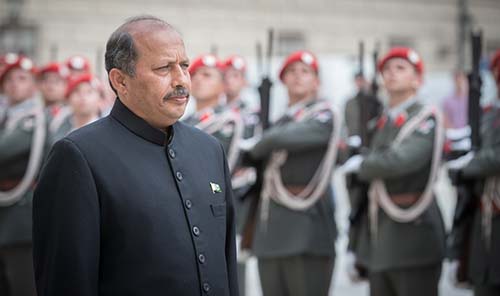
The Afghan Taliban and India have established contacts. Does it anyway undermine Pakistan’s interests?
Afghanistan is a sovereign country and it can pursue its relations with other countries, including India, according to its own interests. However, there cannot be a comparison of Pakistan-Afghanistan and Afghanistan-India relations. The first is the relationship between two close neighbours with religious and cultural commonalities and a 2,600 km long shared border. The other is the relationship of any two countries in the region. When the Taliban took over Afghanistan, India instead of maintaining diplomatic presence in Kabul, decided to evacuate all its diplomatic personnel. India has also been critical to the Afghan Taliban for many many years, calling them terrorists and not recognizing them as a political force. In the last few months, India has, however, re-opened its diplomatic missions in Afghanistan though at a lower level. Now as regards to the people-to-people and economic interaction is concerned, Pakistan and Afghanistan have a much larger potential for mutually beneficial relations. However, if Pakistan leaves a vacuum in the engagement, and does not address the requirements for modernization of border crossings to provide facilitation in the movement of people and trade, it will be filled by others. This is a natural phenomenon.
Earlier, Pakistan accused the Indian and the Afghan intelligence of fanning terrorism in the country. But even after the Taliban’s takeover, the terrorism challenge has not receded. Both the Tehreek Taliban-e-Pakistan and the marginal extremist nationalist groups continue to use the Afghan soil against Pakistan. Is it because the Afghan Taliban do not have full authority in many or some of its areas or is it because of a lack of political will?
Cross-border terrorism and the TTP issue is a complex and formidable challenge. The issue has two dimensions. One, to ensure a comprehensive strategy against the TTP, involving military as well as political and economic dimensions. There the government has to ensure effective actions to tighten internal security and intelligence in the country. Second, the issue of the presence of the TTP commanders and fighters in Afghanistan requires effective border checks and obtaining cooperation with the Afghan interim government. In my view, we have to make use of diplomatic channels and political-level engagement with Afghanistan to handle this and other difficult issues. Public statements and blame games only strengthen the hands of our detractors.
Al-Qaeda and Daesh continue to operate in Afghanistan. Daesh is even carrying out acts of terrorism against the Afghan Taliban. Is it a threat to Pakistan?
In the last few years, the terrorist groups including Daesh, remnants of Al-Qaeda, TTP, Baluch militants, ETIM, IMU and many other outfits have strengthened their presence inside Afghanistan. Islamabad for many years has continued to seek cooperation of the successive Afghan governments in the field of counter-terrorism against these groups, which are a threat to peace in both Afghanistan and Pakistan.
You have been urging a better and pro-people immigration system on the Pakistan-Afghan border. How can this be achieved while ensuring documentation?
I believe people-to-people engagement is the most important facet of Pakistan-Afghanistan relations. While Pakistan brought a liberal visa policy for Afghans in 2020 during President Ashraf Ghani’s regime and it received deep appreciation in Afghanistan, after the Taliban take-over, gradually the visa systems have become tougher causing hardships to the people. The border crossings are also in a primitive shape. It is important to address these factors and create opportunities for dignified and documented movement of people across the border. Delay in addressing these aspects would remain irritants in the bilateral relations.
Contrary to the expectations, the attitude of the Afghan Taliban towards women education and employment has not changed. Do you expect any improvement given the fact that they recently closed the doors of higher education and employment to women?
Women comprise more than 50 percent of the Afghan population. Providing them opportunities for education and access to work in different fields is the need of the Afghan people. The Afghan Taliban have to understand that by not addressing this issue, they are impeding their country’s growth, progress and development. Again, if Pakistan has close bilateral engagement with the Afghan government and institutions, it can be helpful in convincing the relevant Taliban leaders to show flexibility.
Is it an ideological stance or an effort to draw the attention of the world towards Afghanistan?
It can be both — a stance on ideological grounds, particularly of some individuals in the Taliban leadership, or a reaction to major powers imposing undue restrictions on the Afghan state and people, especially freezing their assets and suspending banking transactions with Afghanistan. In any case, Afghans are suffering — whether it is the economic sanctions by the Western countries or Taliban suspending education of girls. I hope that both sides work out an approach whereby economic international sanctions against Afghanistan are lifted and the Afghan Taliban allow girls’ education and women to work in various fields, according to religious and cultural norms.
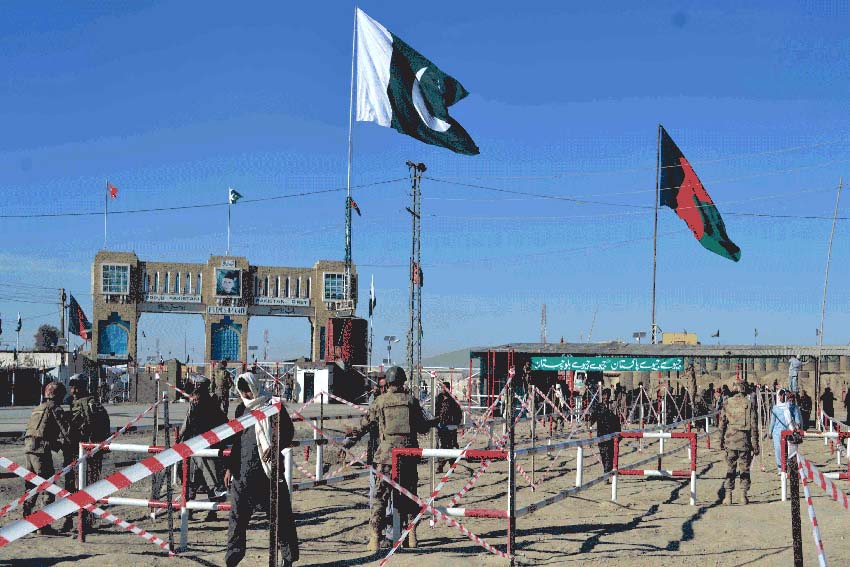
Which regional player you think would be able to better leverage itself in Afghanistan? Is China top in the list?
Both China and Pakistan being the neighbours are the relevant regional actors for a game-changing role in Afghanistan. But it is important to underline that Afghanistan should not continue to be seen as a zero-sum game. After decades of conflict and chaos, international and regional countries should reach an understanding for peace, stability and connectivity with Afghanistan. Similarly, all the ethnic groups in Afghanistan should have faith in their governance and political framework. This is a challenging task, but this is vital to bring durable stability in Afghanistan.
Do you anticipate the resumption of US military operations in Afghanistan?
Undertaking military operations and strikes inside the territory of a country by another country is a violation of sovereignty, territorial integrity and the international laws. Such actions can lead to chaos and instability not only in Afghanistan, but in the region. We have over the years maintained that there is no military solution to any conflict. In addition, the United States and other major global and regional powers have been engaged with the Taliban for many years in the Afghan peace process and for the past one-and-a-half-year with the Afghan interim government. I hope this engagement helps to address all the differences and divergences.



